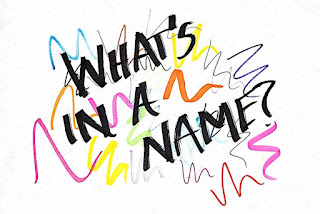While going through the process of cleaning out the junk drawer in my office (admit it – somewhere in your house there is a junk drawer. I have one in my office and one in the kitchen), I found an old flash drive. How old? This was from way back in the days when you would go out and buy your own little drive, as opposed to now when you get them as complimentary gifts for getting a magazine subscription or a full tank of gas. This was from the days when capacity was measures in megabytes, not gigabytes (and now terabytes). What I’m saying is that it was old. More to the point, it held a trove of old stories and essays.
This can be a terrifying experience – uncovering old writing and reading through the copy, knowing every mistake of your youth is there to remind you of how horrible you could be. However, I have mentioned in the past that sometimes this can be a very beneficial experience. Looking at your old work and recognizing all the mistakes is a great reminder of how much you have grown as a writer (and perhaps as a person depending on the subject). As personally embarrassing as it might be to see such simple mistakes repeated over and over and over, knowing now that these are mistakes means you’ve bettered yourself in some fashion. And this is where the big point of today’s post comes in.Wherever we are on our journey of writing, we all have something in common: We seek to be better than we were. We look to improve ourselves in some way, shape, or form. Everyone progresses in a different manner and at a different rate, but we all can improve on our craft, and that’s a noble mission. There is never any shame in the steps we take to be better than we once were – it is the foundation of human development. As long as we don’t somehow harm people along the way, such progress is always a virtue.
So, back to the little flash drive. The most interesting thing that I found on this drive was that it carried a bunch of works from an old writing workshop I attended, mostly the writing of other people. While I did lose touch with a couple of the writers and two have since passed away, I still knew most of them and almost all of them still wrote on a regular basis. This old writing was, at times, embarrassing, but it gave me a personal joy to see how far along these writers had grown. A few of them have had short stories and essays published in anthologies, several went on to write novels, and a couple of them were even published. And, in all fairness, there were other writers who should’ve been published but they didn’t take that big step… not yet, anyway.
The workshop all this writing came from is no longer active; it was a victim of library cutbacks and the eventual passing of its founder. However, members did move on and try to start up their own writing groups, spreading the art of writing to other areas. Some libraries gladly sponsored such activities, others were (for reasons unknown) hesitant to host such a group. And wherever these groups caught hold, I know at least one person that grew into a full and complete writer.
So, in short, this little flash drive reminded me about the value both of workshops and of the importance of regular writing. And, needless to say, in combination, they help perpetuate a virtuous cycle of creating writers that maybe, someday, start their own groups and bring the art of the written word to the next few generations.
BTW – the rest of the drawer never got cleaned out. After my discovery, I realized it serves its purpose just fine.






